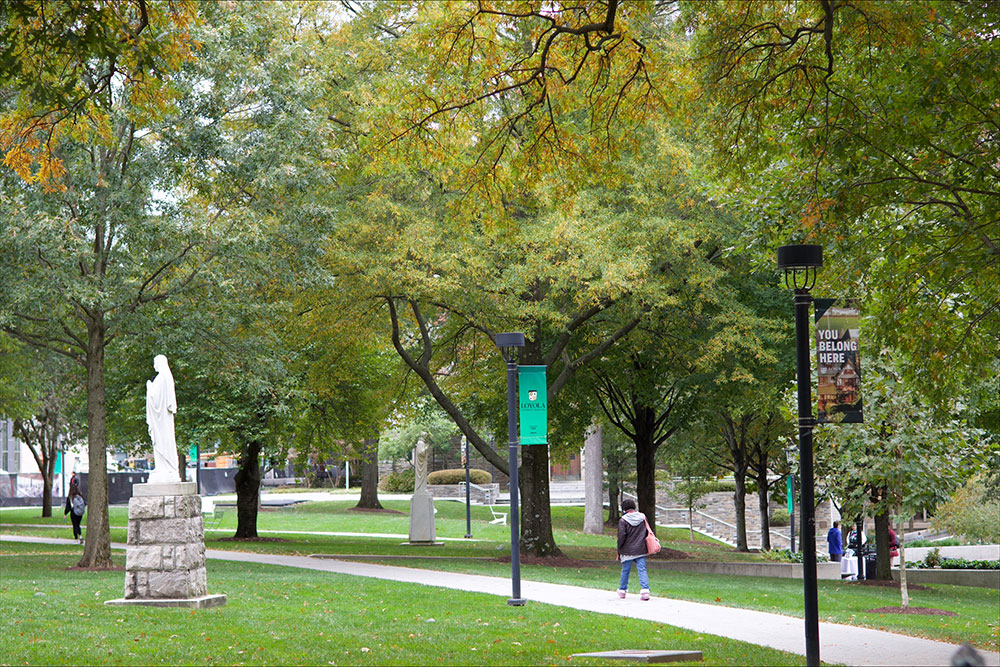Loyola recognized nationally for environmental sustainability

Loyola University Maryland has again been recognized among the nation’s top institutions for environmental sustainability in The Princeton Review’s “Guide to Green Colleges: 2026 Edition.” The guide recognizes schools that foster a culture of environmental responsibility.
"At Loyola, we are charged and inspired by Pope Francis’ Laudato Si’ encyclical, on care for our common home,” said Brigid Gregory, sustainability director. “We do this by prioritizing integral ecology, equity, and justice in every aspect of university life, from academics and research to operations and service to the community. Through the University’s leadership and example, we hope to empower Loyola students, employees, and visitors to adopt sustainable lifestyles that reflect our commitment to creating a better future for the planet and all its people."
The Princeton Review chose the schools in the “Guide to Green Colleges” based on surveys of administrators at nearly 401 colleges during the 2024-25 academic year. Editors analyzed more than 25 survey data points to select the 388 schools for the guide. The schools were selected for their exceptional programs, policies, and practices related to sustainability and the environment. The Princeton Review also recognized Loyola among the nation’s top institutions for undergraduates in the “Best 391 Colleges: 2026 Edition” earlier this year.
Loyola’s efforts to care for the environment are guided by the University’s Laudato Si’ commitment, which focuses on integral ecology and caring for our common home. This year marks the 10th anniversary of Pope Francis’ encyclical, Laudato Si’. Loyola's strategic plan, Together We Rise, calls for the University to enhance its commitment to caring for our planet and people through prioritizing sustainable practices that create positive change.
Led by the Office of Sustainability and the University’s Sustainability Committee, Loyola has established a comprehensive climate action plan and green building and energy management policies. Loyola works to reduce waste, maintains an accredited arboretum and native gardens, and partners with the community to run a farmers market. The University is in the process of updating its climate action plan and is also developing a clean energy master plan to focus on campus-wide deep decarbonization; these initiatives will guide the institution as it transitions from fossil fuels to renewable energy.
In recent years, Loyola has added several new academic programs centered around sustainability and the environment. Students can earn Maryland’s first Bachelor of Business Administration in sustainability management through the Sellinger School of Business and Management. Environmental Science and Studies has also expanded to offer a Bachelor of Science in Environmental Science and a Bachelor of Arts in Environmental Studies, in addition to an environmental studies minor.
Learn more about this and other prestigious rankings and notable accolades that Loyola University Maryland has earned from major national, international, and regional reports, studies, and surveys.